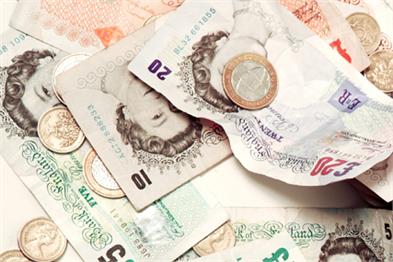
The strategic global media unit behind Universal McCann and Initiative has raised its 2010 media revenue forecasts from growth of 3.1%, made just three months ago, to 6.2% today.
Bumper bottom lines for media suppliers’ operating in the television sector have led the recovery, and media is now expected to generate £11.6 billion in advertising for the year, roughly equivalent to 2005 levels.
TV is believed to have benefitted from a "flight to quality" with advertisers retreating into proven media given broad economic uncertainty. The Adam Crozier-led ITV1 is singled out as performing "well ahead of the company’s own expectations", in large part due to World Cup coverage during June.
The media growth also came despite coinciding with the new coalition government starting to slash its own advertising budgets handled by the COI, "suggesting", according to the report "greater resilience than originally thought".
The report, compiled by Richard Oliver, managing partner at UM, states: "Our longer-term growth rates for 2010-2015 have been increased as well, up from +2.7% to +3.3%."
The upward revision comes despite growing uncertainty surrounding the wider economic climate over the next 12 months.
An ‘optimism index’ from BDO, which tracks how businesses expect trading to develop over the next two quarters, has today fallen to its lowest level since the deepest part of the recession between November 2008 and July 2009.
A collection of major retailers, including John Lewis, Waitrose and Kingfisher, are all expected to warn of cooling demand in the run-up to Christmas in trading updates this month, as shoppers become wary of public sector cuts and forthcoming VAT hike.
MagnaGlobal’s report notes: "Consumer confidence and credit growth continue to be weak and could restrain growth in GDP and Industrial Production, key inputs to our longer-term forecast models. Monthly advertising revenue growth rates are slowing post-World Cup as we move into months with tougher comparables.
"These headwinds suggest some restraint is warranted in upgraded expectations associated with the advertising economy."
The optimistic report acknowledges fears that the General Election and World Cup may have merely concentrated spend into the first half of the year, and admits the fourth quarter will be "critical" to 2010 results.
But television is nonetheless tipped to achieve growth of 12.5% for the year, second only to online search, which is tipped to grow 12.8%.
Radio is expected to partially benefit from some pent-up demand following record declines in 2009, but growth remains modest at +2.9% for 2010.
The outlook is not so good for newspaper and magazine publishers, with advertising revenues expected to continue to drop - albeit at a more modest 1.9% and 2.0% respectively.
By contrast, outdoor is faring better than expected, as significant culls in inventory have contributed to commensurate increases in pricing and revenue, now forecast to rise 7.6% in the year.
However, more moderate growth is anticipated for the media industry as a whole over the next five years, despite the forthcoming 2012 Olympics, with an average of +3.6% gains each year through 2015, revised down from +5.5% tipped in the previous quarter.
Bumper bottom lines for media suppliers’ operating in the television sector have led the recovery, and media is now expected to generate £11.6 billion in advertising for the year, roughly equivalent to 2005 levels.
TV is believed to have benefitted from a "flight to quality" with advertisers retreating into proven media given broad economic uncertainty. The Adam Crozier-led ITV1 is singled out as performing "well ahead of the company’s own expectations", in large part due to World Cup coverage during June.
The media growth also came despite coinciding with the new coalition government starting to slash its own advertising budgets handled by the COI, "suggesting", according to the report "greater resilience than originally thought".
The report, compiled by Richard Oliver, managing partner at UM, states: "Our longer-term growth rates for 2010-2015 have been increased as well, up from +2.7% to +3.3%."
The upward revision comes despite growing uncertainty surrounding the wider economic climate over the next 12 months.
An ‘optimism index’ from BDO, which tracks how businesses expect trading to develop over the next two quarters, has today fallen to its lowest level since the deepest part of the recession between November 2008 and July 2009.
A collection of major retailers, including John Lewis, Waitrose and Kingfisher, are all expected to warn of cooling demand in the run-up to Christmas in trading updates this month, as shoppers become wary of public sector cuts and forthcoming VAT hike.
MagnaGlobal’s report notes: "Consumer confidence and credit growth continue to be weak and could restrain growth in GDP and Industrial Production, key inputs to our longer-term forecast models. Monthly advertising revenue growth rates are slowing post-World Cup as we move into months with tougher comparables.
"These headwinds suggest some restraint is warranted in upgraded expectations associated with the advertising economy."
The optimistic report acknowledges fears that the General Election and World Cup may have merely concentrated spend into the first half of the year, and admits the fourth quarter will be "critical" to 2010 results.
But television is nonetheless tipped to achieve growth of 12.5% for the year, second only to online search, which is tipped to grow 12.8%.
Radio is expected to partially benefit from some pent-up demand following record declines in 2009, but growth remains modest at +2.9% for 2010.
The outlook is not so good for newspaper and magazine publishers, with advertising revenues expected to continue to drop - albeit at a more modest 1.9% and 2.0% respectively.
By contrast, outdoor is faring better than expected, as significant culls in inventory have contributed to commensurate increases in pricing and revenue, now forecast to rise 7.6% in the year.
However, more moderate growth is anticipated for the media industry as a whole over the next five years, despite the forthcoming 2012 Olympics, with an average of +3.6% gains each year through 2015, revised down from +5.5% tipped in the previous quarter.



.jpg)


.jpg)